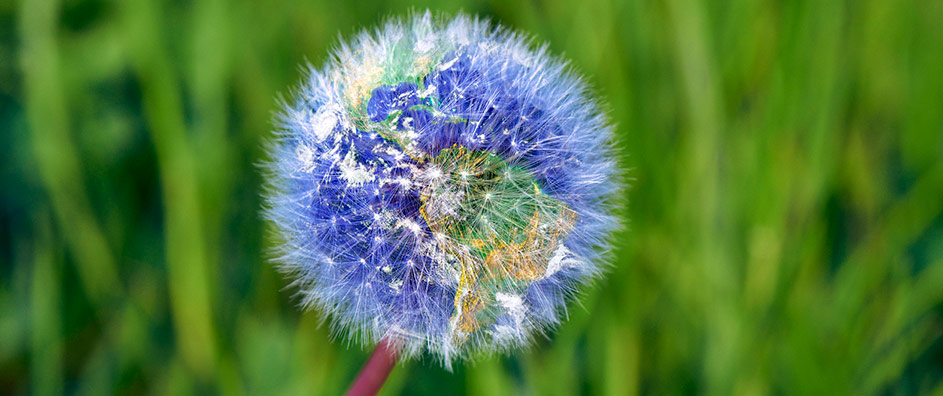The concept of springtime offers an alluring metaphor within the framework of Baha’i teachings, suggesting a rejuvenation not only of the physical world but also of the inner landscape where the spirit dwells. Just as the natural world undergoes a metamorphosis, shedding the cold mantle of winter to embrace the blossoming flora of spring, so too can individuals embark upon a transformative journey of the soul. This article explores the profound implications of this metaphor, as well as its unique appeal to Baha’i adherents seeking spiritual cultivation.
In Baha’i philosophy, the inner world is akin to a garden, which requires diligent care, mindfulness, and nurturing to thrive. The principles of spiritual cultivation advocate for an awareness of the inner self and the conscious effort to prune away the debilitating thoughts and emotions that resemble thorns in a garden. By examining these elements of the inner world, one can begin to understand the significance of personal growth and the consequent blooming of virtues.
Just as various flowers lie dormant, waiting for the opportune moment to emerge, so can the virtues of love, compassion, patience, and justice lie within each individual, awaiting cultivation. The Baha’i teachings encourage adherents to be mindful of the seasons of their lives, embracing periods of reflection and introspection, akin to the quietude of winter, necessary before the vibrant activity of spring. The importance of this analogy cannot be overstated; it portrays the cyclical nature of growth and transformation found not only in nature but within the human spirit.
Springtime is a season marked by renewal and hope, reverberating with the joyful symphony of life awakening from dormancy. This notion resonates deeply with the teachings of Baha’u’llah, who elucidates the idea that spiritual rebirth is a vital aspect of the human experience. Baha’i teachings articulate that every soul has the innate capacity for divine qualities, yet often, these virtues remain unmanifested until one consciously endeavors to cultivate them. This resonates with the allegorical imagery used in literature, where spring serves as a universal symbol of rebirth, illustrating the inherent potential for regeneration in individuals.
A significant aspect of nurturing the inner world is the reflective practice of prayer and meditation. These sacred acts serve as the nourishing rain that cultivates the garden of the soul. By dedicating time to contemplation, one invites the delicate and restorative energies of the spirit to permeate the mind and heart. Prayer is not merely a ritualistic act, but an engagement with the Divine that fosters a deeper understanding of oneself and one’s relationship with the greater cosmos. Baha’i writings emphasize the transformative power of this spiritual practice, rejuvenating the spirit and facilitating a profound connection with others. In this light, prayer becomes a vehicle through which one can partake in the collective cultivation of the human spirit.
The metaphor of springtime also encapsulates the fervor for service to humanity, as Baha’is are urged to embody the principle of altruism. Just as spring brings forth an abundance of life, so too must individuals channel their cultivated virtues into acts of service and kindness. This interconnectedness is highlighted through the Baha’i concept of unity in diversity. The blossoming of individual virtues contributes to the overall beauty and harmony of the community. Adherents are implored to find joy in the uplifting of others, recognizing that in promoting the welfare of humanity, they further cultivate their own inner garden.
Equally paramount in this reflection is the examination of the barriers that inhibit spiritual growth. The habits and thought patterns that resemble weeds in a garden must be uprooted to allow for the flourishing of virtues. Baha’i teachings advocate for accountability and self-examination as pivotal components of this process. Individuals are encouraged to confront their inner detractors, whether these manifest as fear, prejudice, or discontent. Acknowledging these aspects enables individuals to emerge from the shadows of self-doubt into the radiance of personal empowerment. The act of confronting these challenges is, in itself, akin to preparing the soil for new life, facilitating a richer, more fertile ground for virtues to germinate.
Furthermore, the ethos of giving and sharing reflects the interconnectedness of existence, exemplifying that the blossoming of one’s spirit has far-reaching implications. Just as flowers in a garden share their beauty and fragrance with pollinators and passersby alike, so too must individuals inspire and uplift one another. The Baha’i teachings emphasize a collective contribution to the betterment of society, urging each person to be a beacon of hope and radiance in their communities. This notion extends beyond mere acts of service; it encompasses the understanding that shared experiences and collective joy contribute to a flourishing inner world for all.
As we contemplate the metaphor of springtime in the inner world, a profound reverberation of hope and renewal emerges. The Baha’i teachings intricately connect the cultivation of the self with the service to humanity, illustrating that personal transformation is ultimately linked to the broader aspirations of society. In acknowledging our own inner spring, we become agents of change—cultivators of gardens not just within ourselves, but within the collective human experience.
In conclusion, as the natural world awakens each spring, so must we embrace the rejuvenating spirit of the garden within, fostering our virtues, confronting our challenges, and committing to the service of humanity. By doing so, we not only realize our inherent potential but also contribute to the vast symphony of life, uplifting ourselves and those around us in a magnificent tapestry of unity. The springtime of the inner world invites all to partake in this sacred journey towards spiritual blossoming.
